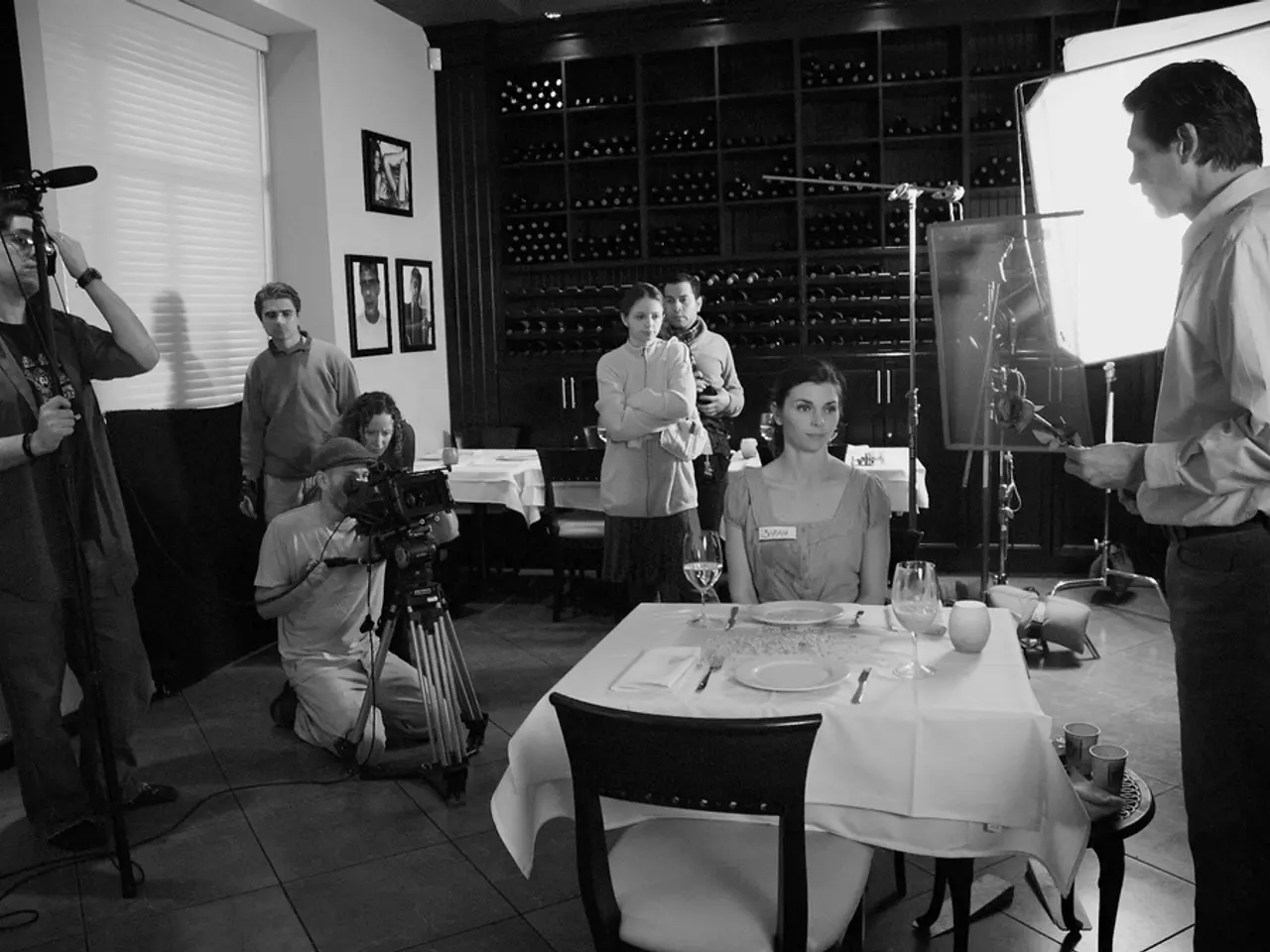Life's Triumph: A Tale Embracing Tradition, Culture, and Family Ties
In the vibrant film industry of South Africa, a new gem has emerged, capturing the hearts of audiences and critics alike – the film *Barakat*. This moving narrative, set against the backdrop of Cape Town's Cape Flats, tells a story of family, resilience, and cultural identity that resonates deeply within the South African film landscape.
The brainchild of screenwriter and playwright Amy Jephta and writer Ephraim Gordon, *Barakat* originated from a conversation about the portrayal of black, middle-class South Africans and their families on screen. With a goal to depict the Cape Muslim community in a positive light, Jephta and Gordon set out to create a film that authentically represents the lived reality of this subsection of black South Africa.
The film centres around Ayesha Davids, a widow who must preserve peace between her four sons after their father's death. The sons, Zunaid, Zaid, Yaseen, and Nur, return home for Eid-ul-Fitr and have never fully dealt with their father's death. The narrative evolves into a poignant exploration of grief, interwoven with the symbols and rituals of Islam that play a strong role in the film, such as food, family photographs, prayer mat, Quran, and various decor.
To ensure the authentic portrayal of the Cape Muslim community, the production team worked closely with cultural advisors, including Abduragman Adams, Yazeed Kamaldien, Khalil Kathrada, Moeniel Jacobs, Ayesha Khatieb, Jawaahier Petersen, the Crescent Observer's Society, Imam Yusuf Pandy, and Farouk Valley Omar. The film was shot on location in Athlone, Gatesville, and surrounding Cape Flats areas, further enhancing its authenticity.
*Barakat* made its debut at the 2017 kykNET Silwerskerm Festival, where Jephta and Gordon won awards for best screenplay and best short film for their previous work, 'Soldier'. This marked their debut as a director-writer duo, and *Barakat* went on to become South Africa's first Muslim film in Afrikaaps.
The film has garnered numerous accolades at international film festivals, including Best Narrative Feature at The Reel Sisters of The Diaspora Festival, Best Editing and Best Production at the Motion Pictures International Film Fest, and several awards at the Idyllwild International Festival of Cinema.
*Barakat* presents a significant shift in the portrayal of black South African lives on screen, offering a diverse and varied depiction of minority communities in South Africa. Through its exploration of family relationships, cultural heritage, and resilience amid socio-economic or personal challenges, *Barakat* serves as a testament to the richness and complexity of South African life and culture. For a comprehensive understanding of the thematic breakdowns and filmmaker commentary, checking film festival notes, director interviews, or film reviews is recommended.
- In the realm of lifestyle, our focus shifts to the South African film industry, where a new cinematic marvel, *Barakat*, has emerged.
- This emotionally stirring masterpiece, set in Cape Town's Cape Flats, draws audiences and critics into a narrative of family, resilience, and cultural identity.
- The origin of *Barakat* begins with a dialogue between screenwriter Amy Jephta and playwright Ephraim Gordon.
- They sought to address the lack of representation of black, middle-class South Africans and their families on screen.
- The aim was to depict the Cape Muslim community authentically, offering a nuanced perspective into the lived reality of this ethnic group.
- The story revolves around Ayesha Davids, a widowed mother navigating family dynamics after her husband's passing.
- Her four sons, Zunaid, Zaid, Yaseen, and Nur, try to reconcile their emotions while dealing with their father's death.
- The narrative unfolds as a poignant examination of grief, interwoven with the symbols and rituals of Islam.
- Food, family photographs, prayer mat, Quran, and various decor play crucial roles in enhancing the film's authenticity.
- To achieve this authenticity, the production team collaborated closely with cultural advisors such as Abduragman Adams, Yazeed Kamaldien, Khalil Kathrada, Moeniel Jacobs, Ayesha Khatieb, Jawaahier Petersen, the Crescent Observer's Society, and others.
- *Barakat* was filmed on location in Athlone, Gatesville, and surrounding Cape Flats areas.
- The film premiered at the 2017 kykNET Silwerskerm Festival, a significant event in South Africa's film industry.
- Jephta and Gordon were recognized for their talent with awards for best screenplay and best short film for their previous work, 'Soldier'.
- Their directorial debut with *Barakat* marked South Africa's first Muslim film in the Afrikaaps language.
- The film has garnered numerous accolades at international film festivals, including Best Narrative Feature, Best Editing, and Best Production awards.
- With its exploration of family relationships, cultural heritage, and resilience amidst socio-economic or personal challenges, *Barakat* offers a fresh perspective on black South African lives.
- To delve deeper into the film's themes and creator insights, seeking out film festival notes, director interviews, or film reviews is advisable.
- In the world of fashion-and-beauty, this new film sensation is likely to influence the representation of Muslim women in media and fashion.
- In the culinary landscape, the portrayal of food in *Barakat* is expected to inspire interest in South African Muslim cuisine.
- *Barakat* may also prompt discussions about family dynamics and intergenerational relationships, particularly within the South African context.
- As a piece of social-media content, clips and reviews from the film are sure to spark conversation among users.
- The film's success may lead to further exploration of diverse and underrepresented communities in film, fostering a more inclusive film industry.
- In the realm of entertainment and pop-culture, *Barakat* serves as a shining example of how storytelling can bridge cultural divides and foster understanding.
- In the global sports scene, its release coincides with major football tournaments such as the Champions League and NFL, offering fans an alternative perspective on life and culture.





